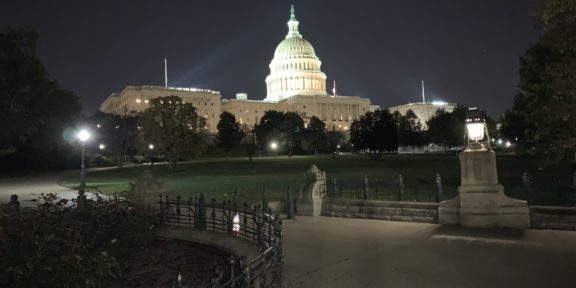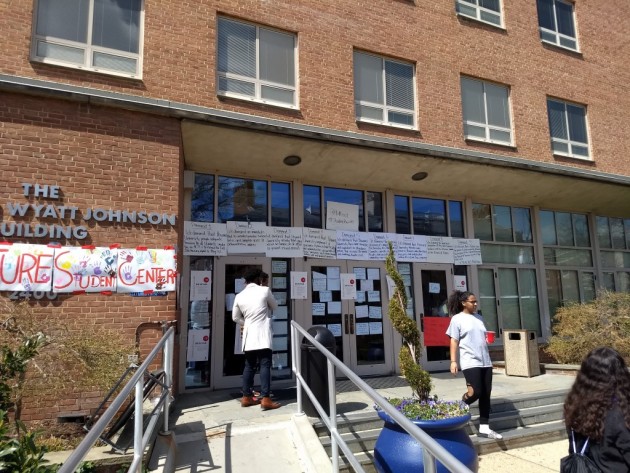Africa is now presenting minorities with vast opportunities to pursue businesses and investments in a new financial frontier that promises to become a mecca for trade and entrepreneurship in the near future, a lawmaker said during a forum held by the Congressional Black Caucus.
Although more African Americans are breaking into the corporate world and reaching millionaire status, many people of color still find that there is a glass ceiling for them in the United States when it comes to entrepreneurship. Rep. Diane Watson, D-Calif., hosted a forum to educate African Americans about the challenges, successes and future of entrepreneurship in Africa.
She stressed that though the African Growth and Opportunity Act, passed in 2000 to strengthen commercial ties with Africa, has helped grow Africa’s economy, it has yet to expand opportunities for African people. The extractive industries, particularly oil, have benefited most from the legislation so leaders and governments have gotten rich while the indigenous people continue to have inadequate education, healthcare and infrastructure, Watson said.
“We need to work with African governments and people to foster a climate of entrepreneurship,” Watson said. “We want to help by offering up opportunities, and we want to help by providing the real energy to lift Africans out of poverty.”
Eugene Jackson, an entrepreneur and one of the largest African American investors in Africa, spoke of the importance of putting African Americans in control of the business portfolio for Africa. He said other American immigrants control the business dealings between America and their homeland, noting the Jewish community.
“Now it is time for you as African Americans to stop apologizing about being African American,” Jackson said. “The portfolio of Africa belongs in the hands of African Americans as relates to America.”
He continued, “The portfolio of the future for African Americans is not Washington, D.C. Haven’t you seen how they’ve taken it back? We can see gentrification all around the country.” Jackson, who is now a permanent resident of South Africa, advised black people to start looking at the big picture for investment, especially considering the limits put on opportunity in the United States as opposed to “the infinite opportunity with infinite vision” in Africa.
Wallace Ford, the executive vice president of GoodWorks International, took a slightly different approach than Jackson and told black people to invest in Africa not solely because they are descendants of the continent, but because it makes good business sense.
“If you’re going to be in business, you’re going to be in business to be profitable,” Ford said. “If your initial interest in Africa is because you’re an African American, that’s fine. But, I’m telling you that at the end of the day, you’re going to be successful at doing business in Africa because you identified an opportunity that makes sense to you…that you can pursue…where you can raise or assemble or accumulate or attract capital…[and] you have the expertise or can assemble the expertise and the market capability in order to be successful. That, my friends, is not a matter of being African American, that’s a matter of being smart.”
Ford added that it is not enough for a company to just look at the bottom line and profits. A successful business in Africa will ensure that its good fortune is tied to the economic growth and prosperity of the indigenous people where the business is located. He recommended agriculture, telecommunications and security reform as key areas to look into if interested in pursuing business in Africa.
Another panelist agreed with Ford and told of her personal experiences with starting a business in Africa. Ahneva Ahneva, a noted fashion designer specializing in cultural couture, moved her business to Nigeria and has opened a plant, which employs the local people. She said she was surprised as to how easy it was to go into business “in the heart of Africa.”
She emphasized the added opportunities she was privy to in the mere four months she has been in Africa that she could not get in the almost 30 years that she has been an entrepreneur in the United States.
“Two weeks after launching my business, I picked up a multi-million dollar contract,” Ahneva said. “I’ve been wasting all this time in America-30 years doing cultural couture. Two weeks after I set up my company, I get a multi-million dollar contract, and not just one contract. It just came boom, boom, boom-just like that.”
She also said she was not able to get a single bank loan during the 27 years she ran her business in the United States, but within four months in Africa she ended up with three major investors.
Ahneva also told the audience not to believe the hype about the violence, robberies and general lack of security in Africa. “There’s killings and robbings in Compton and New York or wherever just like there are in Africa,” she said. “I want you to know that the opportunity is so vast, is so incredible, and I am just here as a living witness of having a personal sankofa, returning, going home…and I came back victorious.”



